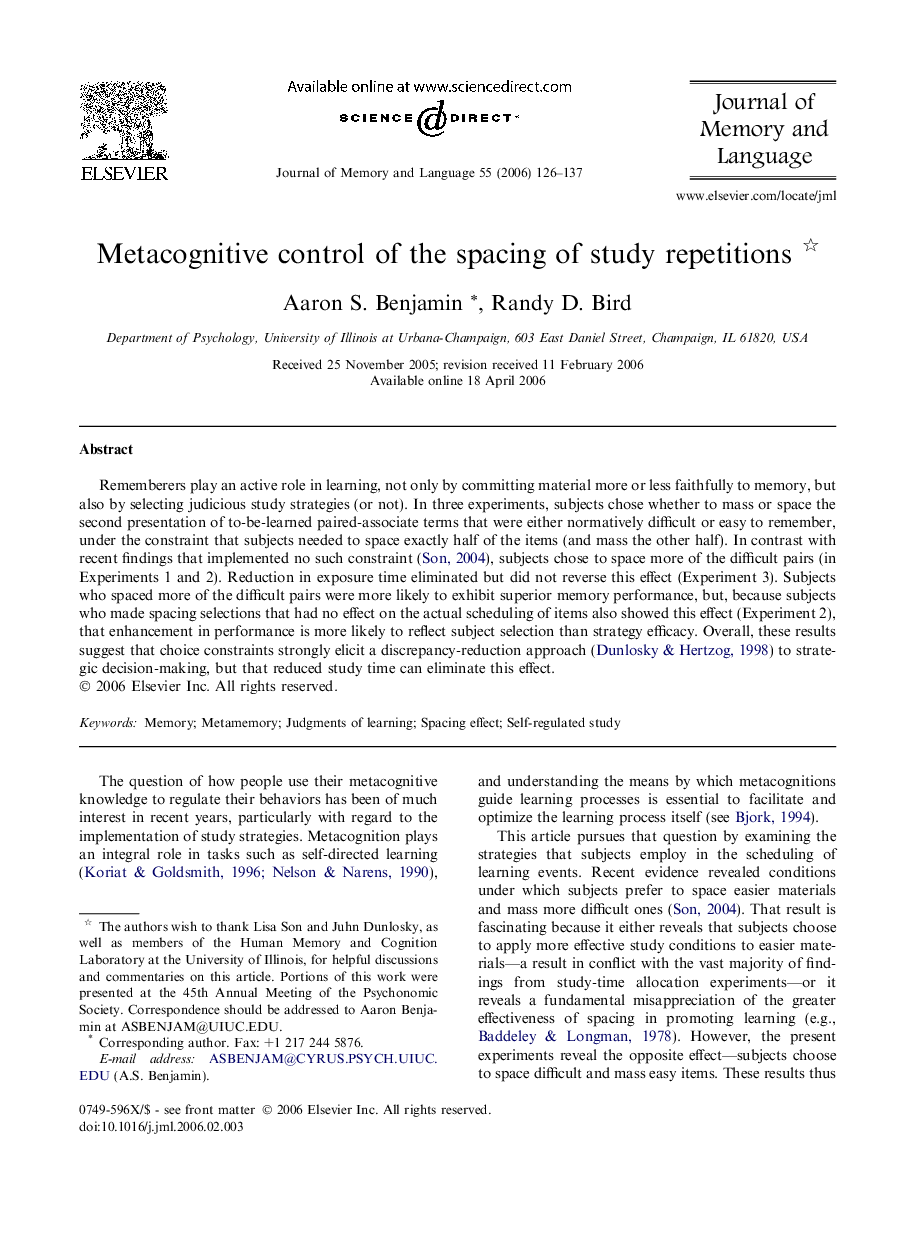| Article ID | Journal | Published Year | Pages | File Type |
|---|---|---|---|---|
| 932369 | Journal of Memory and Language | 2006 | 12 Pages |
Rememberers play an active role in learning, not only by committing material more or less faithfully to memory, but also by selecting judicious study strategies (or not). In three experiments, subjects chose whether to mass or space the second presentation of to-be-learned paired-associate terms that were either normatively difficult or easy to remember, under the constraint that subjects needed to space exactly half of the items (and mass the other half). In contrast with recent findings that implemented no such constraint (Son, 2004), subjects chose to space more of the difficult pairs (in Experiments 1 and 2). Reduction in exposure time eliminated but did not reverse this effect (Experiment 3). Subjects who spaced more of the difficult pairs were more likely to exhibit superior memory performance, but, because subjects who made spacing selections that had no effect on the actual scheduling of items also showed this effect (Experiment 2), that enhancement in performance is more likely to reflect subject selection than strategy efficacy. Overall, these results suggest that choice constraints strongly elicit a discrepancy-reduction approach (Dunlosky & Hertzog, 1998) to strategic decision-making, but that reduced study time can eliminate this effect.
